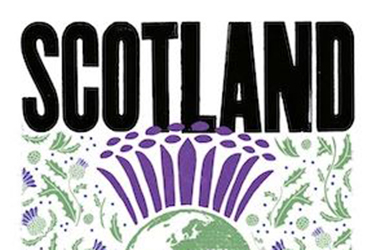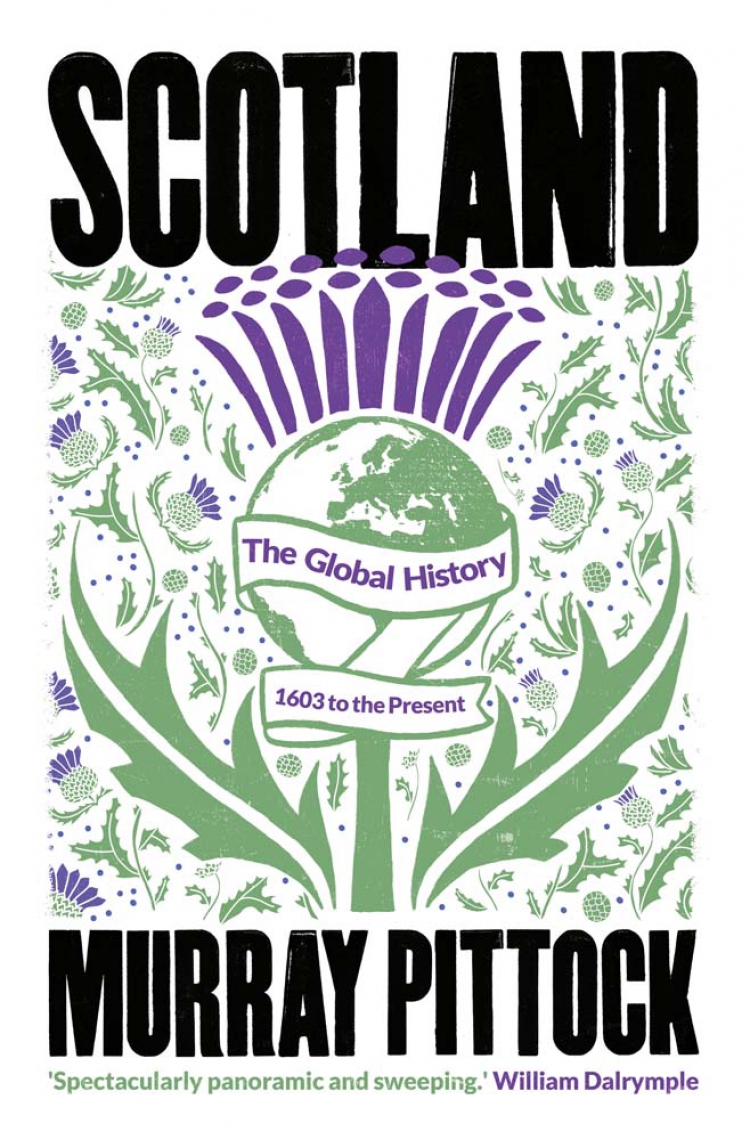
- Free Article: No
- Contents Category: History
- Review Article: Yes
- Article Title: Scots, warts and all
- Article Subtitle: A ‘queer hotch-potch’ of a book
- Online Only: No
- Custom Highlight Text:
I was sorely tempted to judge this book by its cover. The ‘Scotland’ of the title is large, bold, and confident. The subtitle ‘The Global History 1603 to the Present’ is there in diminuendo, unassuming and easy to miss. This encapsulates the volume’s central tension: how is it possible to write the global history of a single nation? How can the emphasis of the first project on boundaryless movement, circulation, and exchange be made to play nicely with the second genre’s preoccupation with distinctiveness, peculiarities, and place?
- Featured Image (400px * 250px):

- Alt Tag (Featured Image): Gordon Pentland reviews 'Scotland: The global history – 1603 to the present' by Murray Pittock
- Book 1 Title: Scotland
- Book 1 Subtitle: The global history - 1603 to the present
- Book 1 Biblio: Yale University Press, £25 hb, 486 pp
- Book 1 Cover Small (400 x 600):

English contemporaries of various stripes could dwell on the negative faces of this global presence. The radical journalist William Cobbett, for example, pilloried Scots’ hypocrisy as the world’s major exporter by the 1820s of both liberal ‘feelosophers’ and slave drivers. Pittock quotes Benjamin Disraeli’s memorable characterisation in his 1845 novel Sybil of William Jardine, architect of the nineteenth-century opium trade and founding father of the Fortune Global 500 company Jardine Matheson: ‘A Scotchman richer than Croesus, one McDruggy fresh from Canton with a million of opium in each pocket’. Global Scots with uncomfortable legacies in the present day – not least in Australia – are woven throughout Pittock’s account. He does not shy away from presenting them warts and all, but aims in most places for a kind of moral score draw. For every Angus McMillan (the notorious architect of the Gippsland massacres and the bogeyman of Don Watson’s Caledonia Australis), Pittock presents a James Dawson (Scots-born ‘protector of Aborigines’ in Victoria). Given the controversies of the moment, some readers will doubtless crave more moral courage, but there is perhaps something to be said for scholarly efforts to pour oil on troubled waters. That’s all the more the case in a big book such as this one, which necessarily blunders into a range of troubled historiographies.
There are a number of fantastic sections in the book, especially those which elaborate on areas where Pittock’s own research has made a substantial and lasting mark. The sheer mobility and connectedness of the seventeenth- and eighteenth-century Jacobites is one example. The manifold links between supporters of the exiled Stuarts and the related endeavours of global finance and piracy are genuinely revealing. Similarly, the global reach and purposes of ‘Romantic Scotland’, and the perhaps less appealing longevity of its bastard version ‘Scotland the Brand’, are expertly presented. The re-Scotticising of a global figure like Lord Byron as part of this endeavour provides some arresting insights. It casts fresh light on his support for Greek independence, for example, here presented as an example of ‘fratriotism’, Pittock’s own coinage for Irish/Scots affinities with other small nationalities within composite states.
Elsewhere, Pittock necessarily leans heavily on his prodigious reading among the voluminous Scottish historiography of recent decades. Here, he is both a sure-footed and stylish guide. Large literatures on the Scots’ multiple engagements with early modern Europe – in the Low Countries and the Baltic in particular – or on Scots and empire in the nineteenth century are compressed and presented with skill. The final quarter of the book is more provisional in tone, down in part to the contingencies of the United Kingdom’s particular political moment, but perhaps even more to Scottish historians’ relative neglect of the post-1945 decades.
Throughout the volume, Pittock has a rare eye for revealing stories and details. One example is his account of ‘the last Indian summer of sail’ and the building in Aberdeen in 1868 of the ship Thermopylae, which still holds the record for the clipper route from London to Melbourne (sixty-one days on her maiden voyage). Frequently these telling vignettes work well boxed-off in that wheeze of modern publishing: the ‘capsule text’. In other places, that device is less fortunate and arbitrarily fences off large parts of text that might have been left comfortably as part of the historical exposition. The Scottish Enlightenment, for example, is central to Pittock’s account, but forms a large and indigestible capsule of nearly seven pages.
Other aspects of the book might frustrate readers, both expert and inexpert. The narrative followed is broadly chronological and pressed into the service of Pittock’s central theme: a relational history of Scotland’s peculiar sovereignty, from the Peace of Westphalia to Brexit. This means that a reader who wants to pursue across time one of the many individual themes on which Pittock is insightful – education, for example – will have to piece this together across different chapters unassisted by the perfunctory names-and-places index. Others might be puzzled by a paradox that runs throughout the volume. The introduction eschews the kind of ‘wha’s like us’ ethnic conceit embodied in the title of a 2001 book about the Scottish Enlightenment by an American writer, Arthur Herman: How the Scots Invented the Modern World. This laudable aim is lost sight of pretty quickly, and the reader is informed in the same paragraph of the key problem ‘that Scots and Scotland are both demonstrably different’. There are, needless to say, points in the book which more or less list exemplars of Scottish achievement.
This, of course, speaks to the probably insurmountable challenge of penning a global history of a single nation. Overall, this volume is not a ‘global history’ as I understand that wider intellectual and cultural project. What it is is a rich, sprawling, often rewarding, sometimes frustrating, chronicle of the interactions of Scots and their intellectual and material cultures with the wider world. To quote Scotland’s most successfully global of poets, Robert Burns, it is a ‘mixtie-maxtie, queer hotch-potch’ of a book. For all that, it is an engaging and outward-facing account, and if current historical writing is to have any role in informing the next phase of the discussion on Scotland’s constitutional future, that will be no bad thing.


Comments powered by CComment